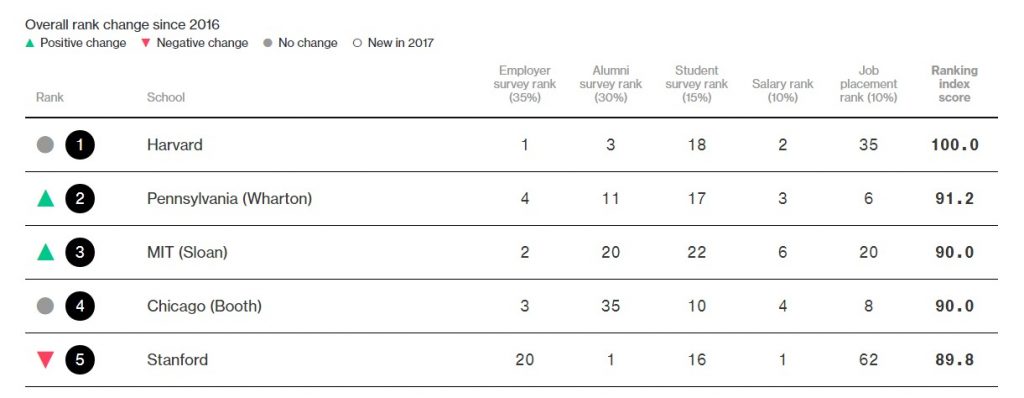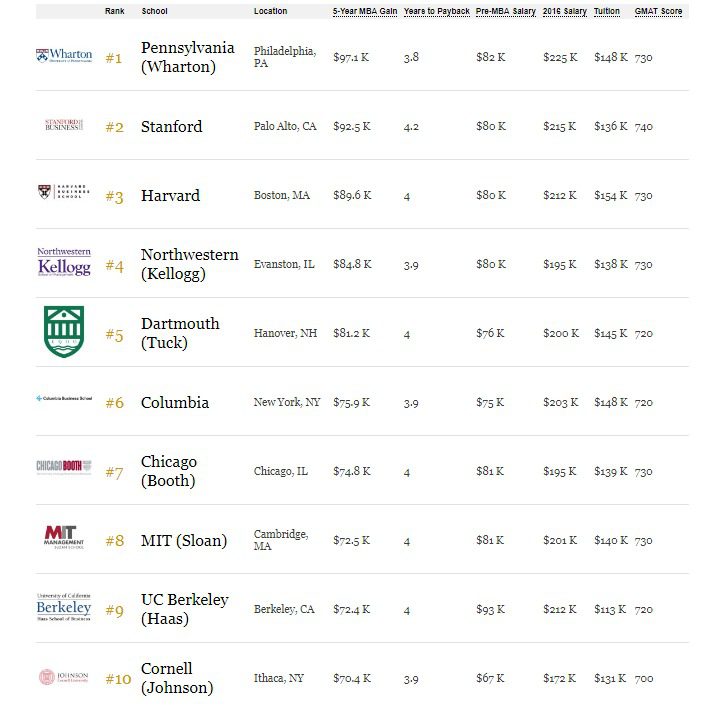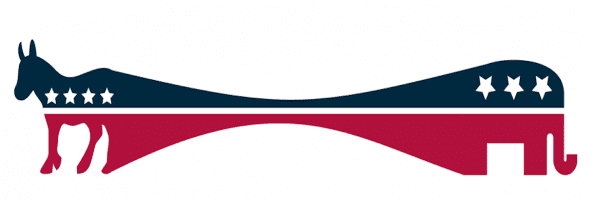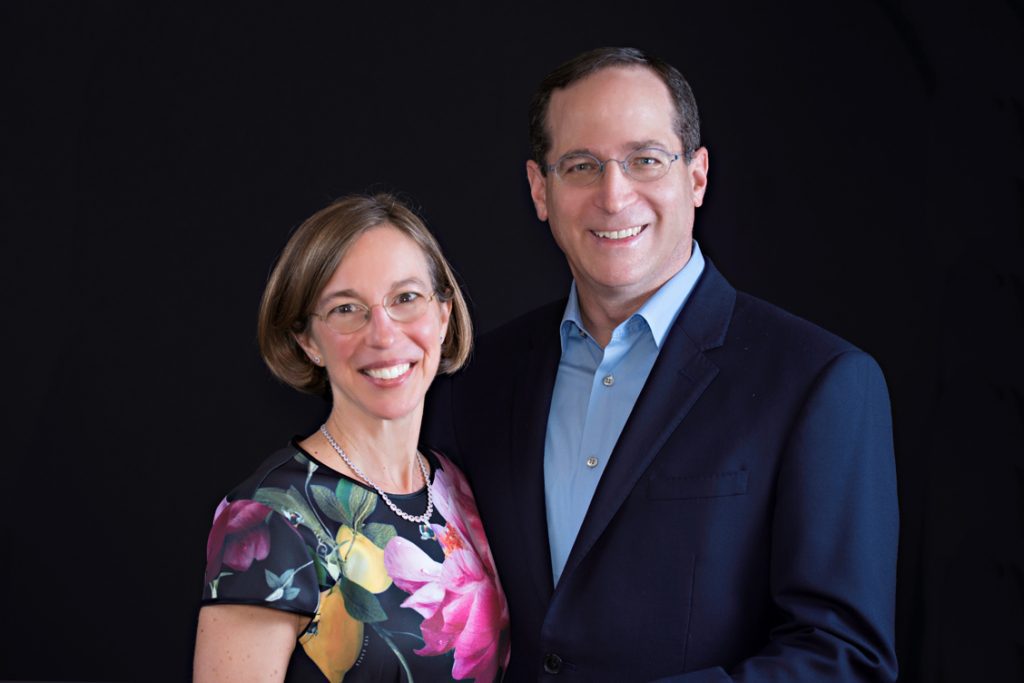Harvard Business School Tops Bloomberg Businessweek Ranking

For the third straight year, Harvard Business School reigned supreme in the annual Bloomberg Businessweek “Best Business Schools” ranking, topping the Wharton School at the University of Pennsylvania and MIT Sloan School of Management. In joining HBS on the medals podium this year, those schools both saw significant gains over last year, climbing from sixth and seventh respectively.
Rounding out the top five this year is the University of Chicago Booth School of Business —holding steady year over year at fourth—and Stanford Graduate School of Business, which fell from second place in 2016 to fifth this year.

The methodology Bloomberg Businessweek uses to arrive at its annual MBA ranking involves weighting each of five principle factors. Employer surveys account for 35 percent of a school’s score. Alumni surveys account for another 30 percent. And a combination of current student surveys, salary rankings, and job placement together account for the remaining 35 percent of the final score.
High Risers
Ten out of the top 20 ranked schools in the 2017 Bloomberg Businessweek ranking advanced at least one spot over last year. Wharton and Sloan each managed to leap four spots, boosted by high praise from employers and hefty salary benefits for recent graduates. The University of Washington Foster School of Business also managed to jump from 19th to 15th overall this year, thanks largely to its top ranking as the nation’s best business school for job placement.
The Cornell S.C. Johnson Graduate School of Management and the UCLA Anderson School of Management both saw a rankings jump of three spots, with Johnson moving up to 13th and Anderson coming in at 19th.
The year’s biggest winner, however, may be the Penn State Smeal College of Business, which jumped a whopping 12 spots from last year’s 37th to come in at 25th in 2017. It wins the award for the year’s biggest overall rankings increase. The USC Marshall School of Business also saw a momentous climb this year, sidling up eight spots from 38th last year to 30th this year.
In the latter half of the rankings came another one of this year’s biggest risers, with the Terry College of Business at the University of Georgia jumping 11 spots from last year, up from 65th overall to 54th. Elsewhere, the David Eccles School of Business at the University of Utah, the Whitman School of Management at Syracuse University, the C.T. Bauer College of Business at the University of Houston, and the Pepperdine University Graziadio School of Business and Management all saw a jump of at least seven spots in the new ranking.
Once Mighty, Now Fallen
Stanford GSB, Duke’s Fuqua School of Business, Dartmouth’s Tuck School of Business, and Jones School of Business at Rice University may all be feeling a wee bit dizzy. Last year Stanford shot up to second from seventh the year before, but this year it finds itself demoted to fifth. Duke’s Fuqua School, which last year celebrated a momentous jump from eighth to third, this year fell back down to seventh. Dartmouth’s Tuck School of Business, which had one of last year’s biggest gains, rocketing up nine spots to break into the top five from a mere 14th place finish the year before, this year finds itself at seventh. Similarly, Rice Business, as the Jones School likes to be called, which last year catapulted 11 spots to number eight, this year slipped to tenth. But at least all maintained their footing within the top 10.
Emory’s Goizueta Business School and the Texas A&M Mays Business School, for their part, slipped out of the top 20 altogether. Goizueta slipped just slightly, from 20th to 21st, and Mays slid from 18th to 22nd. The University of Virginia Darden School of Business also stumbled, slipping from 12th last year to 17th this year. But the Charlottesville school at least managed to remain in the top 20, thanks in part to strong scores in the student survey and salary categories.
No school, however, lost more ground than the George Washington University School of Business, which fell an eye-popping 14 spots from last year, losing its place among the top 50 business schools in the United States.
Bloomberg BW has made multiple changes to its methodology in recent years, resulting in significant volatility in terms of where schools fall on the list even when not much has changed year over year at the individual schools themselves. This has led many to question the credibility of the ranking overall. That said, Clear Admit’s Alex Brown found this year’s results easier to swallow than some in recent years. “This ranking seems more reasonable to me this year,” he says. “Each of the M7 programs are in the top 10, and the schools I would consider in the top 16 are all in the top 20.”
You can view the complete 2017 Bloomberg Businessweek rankings here.
This article has been edited and republished with permissions from Clear Admit.
Social Impact MBAs: Programs That Help Students Make a Difference in the World

For years, social impact has been a growing area of emphasis at business schools. Increasingly, MBA students are stating that a well-paying career isn’t enough: They also want to make a difference.
As Sherryl Kuhlman, the managing director of the Social Impact Initiative at the University of Pennsylvania’s Wharton School, told U.S. News & World Report: “Our students want to make the world go round in a different way. [They are no longer willing to] take a job they don’t like so they can give their money away later. They want to merge the money and the purpose.”
MBA programs incorporate social impact into their programs in various ways, through global experiences, coursework, clubs, competitions, and more. MBA students may also have opportunities to team up with corporations, government agencies, and nonprofit organizations to get hands-on experience during their graduate studies.
So if you’re interested in social impact, what opportunities should you look for within an MBA program?
Centers and Initiatives
Some schools run entire centers and initiatives dedicated to the idea of social change. Typically, these centers provide the foundation around which a variety of social impact opportunities are built, including research, career help, events, and course development.
For example, the McCombs School of Business at UT Austin recently launched its Social Innovation Initiative, which provides students, faculty, and the community with preparation to promote social change. The initiative offers graduate-level curricular offerings, with courses such as “Energy Technology and Policy” and “Invisible Global Marketing.” There are also many extracurricular activities such as the Social Impact Investment Fund, a peer-created fund that provides financial support for MBA students pursuing internships in the social impact space.
“The creation of the Social Innovation Initiative is a crucial step in bringing UT’s overlapping communities together to collectively address the world’s most pressing challenges,” Dr. Meeta Kothare, managing director of the initiative, said in a press release. “The interdisciplinary nature of the initiative is key because the most impactful social innovations often result from collaborations among private, public, and social sectors.”
At Stanford Graduate School of Business (GSB), the Center for Social Innovation aims to bring about social and environmental change through research, education, and experiential learning opportunities. For MBA students, the center offers social innovation courses, study trips, the potential to participate in an investment committee, and fellowships to provide leadership opportunities. The school even hosts an annual ceremony each spring drawing together a tight-knit core of students, faculty, and alumni who share a commitment to social innovation. Three classes of awards are handed out to a dozen students at the event, and Dean Emeritus Arjay Miller, 101, attends to encourage the continuation of a community of social innovation he helped found at the GSB while dean from 1969 to 1976.
Then, there’s the Yale School of Management Program on Social Enterprise. This initiative supports faculty, students, alumni, and practitioners in their pursuit of using business skills to achieve social objectives. It does this by offering a span of programs including courses such as “Global Social Enterprise” and “Managing Sustainable Operations,” as well as research, conferences, and publications. For extracurricular activities, students can participate in the Social Impact Lab, a weekly forum with opportunities to engage with industry leaders and each other, as well as the Economic Development Symposium, an annual conference that brings together eminent scholars, action agents, and key opinion leaders to work on solutions to pressing economic development issues.
Programs
For many business schools, social entrepreneurship is offered part and parcel with their MBA degrees. These programs can range from a one-week social enterprise trip overseas to a formal concentration within the MBA program.
At Northwestern University’s Kellogg School of Management, MBA students can elect a Social Impact pathway concentration. This pathway is designed for students who want to create positive social change and includes required courses on a variety of topics from “Leadership and Crisis Management” to “Public Economics for Business Leaders” and “Health and Human Rights.” Within the pathway, there are three tracks: policy, nonprofit, and social innovation, each offering in-depth coursework to position students for their desired careers.
Meanwhile, MBA students at Emory’s Goizueta Business School can explore social impact through an annual seven- to 10-day Social Enterprise @ Goizueta Trip. These trips take students to countries around the world to observe the challenges that local economies face and develop market-based solutions. Alumni and evening MBA students can also travel to Nicaragua to visit coffee farms and meet growers. Full-time MBA students can visit Nicaragua or El Salvador to explore social enterprises on the ground and work on community health projects.
Competitions
Some schools offer hands-on experience in social impact to their students in the form of social venture competitions.
Through Harvard Business School (HBS)’s Social Enterprise Initiative, which aims to educate, inspire, and support leaders across all sectors to create social change, MBA students can participate in the New Venture Competition (NVC). The competition offers participants a grand prize of $50,000 as well as workshop opportunities, feedback, and business plan development advice.
Designed for students and alumni interested in using their business skills to create innovative approaches to tackling social problems, the Social Venture Competition at NYU Stern School of Business is similar to that of HBS’s NVC. Over the last 11 years it has awarded more than $900,000 to startup social ventures developed by students.
Clubs
Net Impact is one of the most popular social impact clubs, with chapters across the globe. More than 100,000 individuals have joined more than 300 chapters across the world to take on social challenges, protect the environment, and orient business toward social impact. The Net Impact chapter at UCLA Anderson School of Management, for example, has been awarded Gold Status, which recognizes it as a high-performing chapter and qualifies it to serve on the national Net Impact advisory board.
One of highlights of Net Impact is the annual Net Impact Conference, which welcomes attendees from across the globe to hear from keynote speakers, such as Clif Bar CEO Kevin Clearly and Derreck Kayongo, the CEO of the Center for Civil and Human Rights. Attendees at the Net Impact Conference can also take part in a variety of workshops, panels, and boot camps on topics ranging from civic engagement to equity.
In addition to Net Impact chapters, many MBA programs also offer their own social enterprise-focused student organizations. For example, the Social Enterprise Club at Columbia Business School connects students with faculty, alumni, professionals, and organizations to develop business skills and create social, environmental, and economic value.
Scholarships
At Oxford Saïd Business School, MBA students have the opportunity to apply for the Skoll Scholarship, a competitive award for students pursuing entrepreneurial solutions to urgent social and environmental challenges. The scholarship provides funding as well as opportunities for the award winners to meet and interact with world-renowned entrepreneurs, thought leaders, and investors. To qualify, an applicant must have three years of experience in social enterprise and be an incoming MBA student.
At Duke’s Fuqua Business School, there’s the CASE Social Sector Scholarship for incoming daytime MBA students. Scholarship recipients receive at least 25 percent tuition support as well as funding from the CASE Summer Internship Fund. Incoming MBA students who can demonstrate their commitment to applying their business skills in the pursuit of social impact are eligible to apply.
This is far from an exhaustive list—rather it’s a sampling of the wide-ranging opportunities to study social impact across MBA programs around the world. We hope it can provide a jumping off point as you begin to investigate social impact opportunities at your target schools.
This article has been edited and republished with permissions from Clear Admit.
Wharton, Stanford Top Forbes’ 2017 Business School Ranking

For the first time ever, the Wharton School at the University of Pennsylvania topped the biennial Forbes list of the best business school’s in the United States.
Coming in second place on the Forbes 2017 rankings, revealed earlier today, was the Stanford Graduate School of Business, which was followed by Harvard Business School, Northwestern’s Kellogg School of Management, and Dartmouth’s Tuck School of Business rounding out the top five.

Forbes‘ top 10 U.S. business schools (2017)
Rounding out the top 20 were some familiar MetroMBA favorites, such as Columbia Business School (6th), Chicago Booth (7th), MIT Sloan (8th), UC Berkeley Haas (9th), UCLA Anderson (15th), the McCombs School of Business UT-Austin (17th), and the Mays Business School at Texas A&M (20th).
Just making the final cut on Forbes’ newest list, which includes only 70 schools, was the Fox School of Business at Temple University (60th), Pepperdine’s Graziadio School of Business and Management (65th), Northeastern’s D’Amore-McKim School of Business (66th), the Kogod School of Business at American University (67th), and the Gabelli School of Business at Fordham University.
Method To The Madness
Nearly every major publication that reveals its own respective business school ranking list has its own principle methodology in which it follows. For instance, unlike Forbes, the Financial Times ranking system relies more on alumni survey responses for its final ranking. While Forbes does utilize surveys in its ranking, its primary focus is on how graduates fare on their return on investment.
In the ranking release, Forbes staff writer Kurt Badenhausen notes:
“Our ranking of business schools is based on the return on investment achieved by the class of 2012. We examined more than 100 schools and reached out to 17,500 alumni around the globe. We compared graduates’ earnings in their first five years out of business school to their opportunity cost (two years of forgone compensation, tuition and required fees) to arrive at a five-year MBA gain, which is the basis for the final rank. Schools whose alumni had response rates below 15 percent or a negative return on investment after five years were eliminated.”
In regards to Wharton topping the 2017 list, Badenhausen writes, “These days most Wharton MBA students head to finance or consulting jobs upon graduation (79 percent of the class of 2012), which traditionally are the most lucrative areas for MBAs. The concentration in these sectors pushed Wharton’s current total compensation for the class of 2012 to the highest of any school in the world at $225,000.”
YOU MIGHT ALSO LIKE: The Highest MBA Salaries in Philadelphia
The exceptional cost of living around Stanford and shockingly low admissions rates (6 percent) contributed to the business school falling off its top spot from the prior year. Stanford GSB graduates, however, were given enormously valuable stock options after earning employment, with a median value of $380,000. Despite the astronomical figures, Stanford GSB grads still saw a dip of around $40,000 in total five-year compensation compared to the Class of 2010. Similarly, HBS grads saw a $28,000 five-year drop compared to the Class of 2010. Wharton 2012 grads, in contrast, gained $18,000 compared to two years prior.
In regards to employment, not much has changed since 2012. McKinsey and Co. was the top employer of the Wharton Class of 2012, hiring over 50 of the school’s 800-plus graduates. Alongside McKinsey were Bain, BCG, and Deloitte, which are still the school’s top employers. However, since then, Amazon has overtaken Goldman Sachs in the Wharton recruitment war.
Thomas Jueng, Seoul native and 2012 Wharton grad, tells Forbes, “Wharton was a great springboard to make a transition geographically and job position-wise with a strong brand name and network as well as providing practical knowledge.”
Read the entire Forbes list of the best U.S. business schools here.
HBS Paper Looks At US Political Problems Through Lens of Competition

In the free market sense, competition is one of the world’s greatest drivers of innovation. But more often than not, the effect of political competition may not be readily positive, according to new research from Harvard Business School.
Co-authored by former CEO Katherine Gehl along with HBS professor and U.S. Competitiveness Project Co-Chair Michael E. Porter, the duo identified how the “fundamental structural issues ailing the U.S. political system” have evolved using Porter’s Five Forces analysis.
The report breaks down how the American political “duopoly is protected by huge barriers to entry that have not only blocked major new parties but also independents and moderates” and “will not be self-correcting.” What has transpired from time immemorial, according to Gehl, is that the two dominant competitors in the American politics industry “focus on serving their partisan supporters and special interests, not the average voter.”
One revealing portion of the study digs deeper into the profound effects ideology has on the issue.
“Parties compete to create and reinforce partisan divisions, not deliver the practical solutions that are the most important outcome we need our political system to achieve” … “The duopoly appeals to its partisan supporters based on ideology, not policies that work. Ideology offers simplistic and polarized approaches to addressing issues. The definition of ideology includes words such as ‘beliefs,’ ‘perspectives,’ and ‘doctrine,’ not words like ‘reality,’ ‘objective analysis,’ and ‘facts.’ Ideological stances appeal to partisan believers but rarely, if ever, provide an actual solution.”
Porter, whose organization “identifies the necessary steps policymakers and the business community must take to improve U.S. competitiveness,” explained the roots of his desire to extend his research into the political domain.
“I was drawn to analyze the U.S. political system as an industry when our research found that our political system is the biggest impediment to U.S. competitiveness,” Porter said. “Our dysfunctional political outcomes are a competition problem.”
Gehl and Porter used their research as an opportunity to evaluate “which powerful and achievable political reforms should be pursued” and then lay out an actionable plan for how to reinvigorate “our democracy by shifting the very nature of competition.”
Click here to read full report.
Top MBA Programs for Producing Founders: 2017-2018 Report

Recently, PitchBook released its latest 2017-2018 Top 50 Universities Report. The ranking focused on those universities that produced the “ultimate building blocks of the venture industry: founders.”
This ranking is vastly different from rankings of top schools for entrepreneurship by U.S. News & World Report, Princeton Review, and Entrepreneur Magazine, all of which focus on factors like peer assessment surveys, curriculum, and entrepreneurial study options. Instead, PitchBook looked at a single criterion: founders of companies who received venture capital (VC) funding between January 1, 2006, and August 18, 2017, and where they went to school.
The report provides a fairly detailed breakdown of top undergraduate programs, companies (by capital raised), MBA programs, female founders, unicorns (companies that have attained the coveted $1 billion evaluation), and more. This article will focus solely on the results that relate to MBA programs, including information on female founders and unicorns.
Top MBA Programs
For the 2017-18 academic year, the top 10 MBA programs to produce founders who received VC funding were ranked as follows:
- Harvard Business School (HBS): 1,203 entrepreneurs, 1,086 companies, and $28,495 million raised
- Stanford Graduate School of Business (GSB): 802 entrepreneurs, 716 companies, and $18,259 million raised
- University of Pennsylvania’s Wharton School: 666 entrepreneurs, 585 companies, and $16,001 million raised
- INSEAD: 455 entrepreneurs, 406 companies, and $7,795 million raised
- Northwestern’s Kellogg School of Management: 445 entrepreneurs, 417 companies, and $5,680 million raised
- Columbia Business School: 441 entrepreneurs, 410 companies, and $5,465 million raised
- MIT Sloan School of Management: 437 entrepreneurs, 384 companies, and $7,797 million raised
- University of Chicago Booth School of Business: 405 entrepreneurs, 368 companies, and $5,470 million raised
- University of California – Berkeley Haas School of Business: 344 entrepreneurs, 314 companies, and $5,191 million raised
- UCLA Anderson School of Management: 247 entrepreneurs, 232 companies, and $3,957 million raised
HBS stands out immediately for producing founders who receive VC funding. Harvard produced twice as many founders as its next closest competitor, and those founders pulled in $10M more in funding for their 1,000+ companies.
As for the reason behind Harvard’s success, there are multiple elements that contribute to its production of entrepreneurs. The school is home to the Arthur Rock Center for Entrepreneurship, which offers programs for budding entrepreneurs including curricular offerings (over a dozen courses), a New Venture Competition (which offers $300,000 in cash prizes), the Rock Accelerator, the Harvard Innovation Lab, and even a Loan Reduction program that supports graduating entrepreneurs with a one-time, need-based award of $10,000 to $20,000. HBS’s extensive alumni network also provides students with connections with managing directors, partners, and founders of top VC firms including Bain Capital Ventures, Apax Partners, and Accel Partners.
Another standout for the 2017-2018 year was INSEAD. The only non-U.S. MBA program to appear in the top 10, it also moved up a spot this year over last. INSEAD grew from 393 entrepreneurs, 348 companies, and $6,131 million in capital raised to 455, 406, and $7,794 million respectively.
INSEAD’s students are supported by the INSEAD Centre for Entrepreneurship (ICE), which was founded in 2003. The center offers MBA students a chance to participate in the INSEAD Venture Competition (IVC), Entrepreneurship Bootcamps, and the Entrepreneurship Teaching Innovation (ETI) Fund, which supports the development of the “Your First Hundred Days” elective for budding entrepreneurs.
Another MBA program of note is MIT Sloan School of Management, which was fourth in capital raised on this year’s PitchBook ranking. This could indicate more successful companies coming out of MIT or a higher percentage of VC funding available to Massachusetts’ graduates.
Some of the unique entrepreneurship opportunities available from other top programs include Stanford GSB’s Startup Garage, an intensive, hands-on project course for MBA students, as well as MIT Sloan’s Martin Trust Center for MIT Entrepreneurship, which includes an accelerator, coaching, and various events. Finally, the Penn Wharton Entrepreneurship Center offers resources, events, and courses for MBAs looking to explore, develop, launch, and scale a startup.
Top Female Founders & Unicorns
PitchBook also reviewed the top MBA programs for female founders. Once again, HBS and Stanford GSB ranked first and second, respectively, with 202 and 119 female founders. Columbia Business School ranked third with 77, Wharton ranked fourth with 71, and MIT came in at fifth with 60 female founders.
As for the unicorns, the top five MBA programs are similar to the previous lists.
- HBS: 22 entrepreneurs, 17 companies
- Stanford GSB: 14 entrepreneurs, 11 companies
- Wharton: 11 entrepreneurs, 8 companies
- INSEAD: 8 entrepreneurs, 7 companies
- MIT Sloan: 6 entrepreneurs, 6 companies
This article has been edited and republished with permissions from Clear Admit.
Harvard Business School Announces Largest-Ever Scholarship Donation

Harvard Business School (HBS) yesterday announced its largest-ever donation for scholarship aid—a $12.5 million pledge that will help support students who were the first in their families to attend college, among others. The pledge comes from HBS alumni Jonathan Lavine, Co-Managing Partner of private investment firm Bain Capital, and his wife Jeannie (both MBA ’92).
The first $10 million will support the Lavine Family Fellowship Challenge Fund, a matching fund designed to motivate others to donate in support of the school’s scholarship needs. The remaining funds will endow two $1 million fellowships—the Lavine Family Fellowship and the Herbert J. Bachelor Fellowship—and provide an additional $500,000 to the HBS Fund for various school priorities.
The Lavine’s have stipulated that, wherever possible, the fellowships be made available to first-generation college graduates in honor of Jeannie’s father, Herbert Bachelor, who was the first in his family to go to college. Bachelor worked 40 hours a week while an undergraduate at Harvard College to cover expenses but still accumulated a large amount of debt, which grew larger still as he earned his MBA from HBS (’68).

Jeannie and Jonathan Lavine
“It was his dream to have his own children be able to attend college without the stress of holding down a job or the added burden of student debt upon graduation,” said Jeannie Lavine in a press release announcing the gift. She followed in her father’s footsteps, obtaining both her bachelor’s and MBA degrees from Harvard. “He was able to make that dream come true for my siblings and me, and Jonathan and I would like to pay that forward and give other people the same opportunity, especially those who are the first in their family to attend college,” she continued. “We know that intellect is not distributed based on income, and neither should a top education.”
HBS Admissions Is Merit-Based, Need-Blind
HBS prides itself on its merit-based admissions policy, which means that an applicant’s ability to afford tuition does not factor into the admissions process. Once students are admitted, fellowship grants are awarded based solely on financial need. Approximately half of the HBS class receives financial aid each year—$37,000 per student on average—and the school provided $35 million in financial aid to MBA students in the 2016-17 academic year.
“We are thrilled about this gift and grateful to the Lavine family because students who are the first generation in their family to go to college represent an important and needed perspective in the classroom,” HBS Managing Director of Admissions and Financial Aid Chad Losee told Clear Admit. “We admit based on merit and support financially based on need, which makes us different from other business schools,” he added. “Everyone here is here for a reason: because of their talent and merit and what they bring as a leader.”
Close to 10 percent of the HBS class each year is comprised of first-generation college graduates, according to Losee. “We hope this gift and this announcement will help get the word out to people from all different backgrounds who otherwise may feel like HBS isn’t accessible to them,” he said.
Earlier this year, HBS announced another fellowship likewise designed to support students with limited financial means. The Forward Fellowship, announced in July 2017, will award between $10,000 and $20,000 per year to students from lower-income backgrounds above and beyond HBS need-based fellowships. Unlike the HBS need-based fellowships, which are awarded based on students’ individual financial situations, the new Forward Fellowships take into consideration the applicant’s family circumstances and financial history so the available funds can be distributed to those who need them most. These can include not only students who grew up in lower-income households, but also those who plan to provide financial support for their parents during their graduate school careers or after obtaining their MBA.
“We want HBS to be the place where the best leaders from anywhere in the world can come and thrive and be successful,” Losee said. “This most recent gift from the Lavines is great and continues to tell the story that we want to support students when they get here.”
Lavine Family Philanthropic Roots Run Deep
The Lavines’ gift adds to the financial aid resources available to HBS students and builds on the couple’s history of philanthropy, which has long been focused on creating a more equal playing field for all through access to quality education. Jonathan serves as chair of the national Board of Trustees for City Year, an organization focused on reducing the high school dropout rate in U.S. cities. And the couple has also made major contributions to uAspire, an organization focused on providing financial resources to attain a postsecondary education; LIFT, a national nonprofit focused on breaking the cycle of intergenerational poverty; and numerous aid programs at Columbia University, where Jonathan also serves as vice chair of the Board of Trustees.
In addition, they are long-time benefactors and actively involved at Harvard. In 2011, they established the Lavine Family Cornerstone Scholarship Fund to support four undergraduates annually through Harvard’s financial aid program. In 2012, they established the Lavine Family Humanitarian Studies Initiative at the Harvard T. H. Chan School of Public Health to support the training and education of humanitarian relief workers. They also both serve on the dean’s advisory boards at HBS at the School of Public Health and co-chair the latter school’s capital campaign.
“We’re proud to support the work of great academic institutions, because we know first-hand the impact they can have on the world,” said Jonathan Lavine in press release. “There is no greater way to improve someone’s future than giving them access to high quality, post-secondary education. We spent a great deal of time discussing with Dean [Nitin] Nohria our passion for education and how inspired we are by my father-in-law’s journey and appreciative of the opportunity our parents provided us. As a result, we decided that this is the best way to bring those interests together.”
Financial Aid at HBS Is Personal
Losee notes that the newly established Lavine fellowships also help highlight how personal the financial aid process at HBS. “The Lavines will be matched with the individual students they are supporting,” he says. “They will meet them and can develop a mentoring relationship with them.” HBS also features an annual dinner that brings together all HBS donors and the students their gifts help support, he said.
Calling them “the lifeblood of the institution,” Professor Felix Oberholzer-Gee, Senior Associate dean of the MBA program, noted that gifts like the Lavines’ benefit not only the students who receive them but also the school as a whole. “They allow us to focus exclusively on filling our classrooms with the very best students,” he said in a release. “Our learning community is enriched by diversity in all its forms, and the fellowships we offer make it possible to bring people here from all walks of life around the globe.”
Learn more about the Lavines’ $12.5-million gift to support scholarship aid at HBS.
This article has been edited and republished from Clear Admit.
